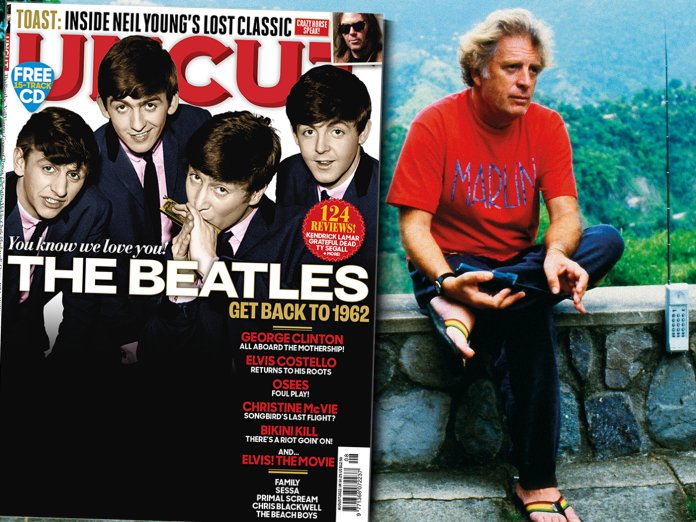“Basically, I’m a music fan,” says Chris Blackwell. “It’s really that simple.” And perhaps it is. As the founder and chief visionary of Island Records in its heyday between the late 1960s and mid-’80s, Blackwell certainly appeared to guide the label with a fan’s enthusiasm. A gambler by nature, and an acute and generous judge of character, under Blackwell’s auspices Island signed people rather than sure-things or cash cows. Steve Winwood, Fairport Convention, Nick Drake, Bob Marley & The Wailers, Roxy Music, King Crimson, Free, Grace Jones, U2 and Tom Waits are just some of the exceptional acts that benefitted from his open mind and impeccable taste.
A Harrow-educated public school dropout, born to a scion of the Crosse & Blackwell family, Blackwell formed Island Records having undergone an apprenticeship servicing jukeboxes throughout Jamaica in the late 1950s. He went from ‘selector’, hunting down the best and most obscure 45s from all over the United States, to tastemaker, forming his own imprint to produce original records. The first Island album, Lance Haywood At The Half Moon Hotel, was released in 1959. Moving the Island operation to the UK shortly afterwards, Blackwell chipped away at the market until 1964, when “My Boy Lollipop” by Millie Small sold seven million copies, launching him as a major player.
Over the ensuing 25 years Island flourished, becoming the ultimate album-orientated label. Habitually shod in Hawaiian shirts and flip-flops, Blackwell kept a relaxed but steady hand on the tiller: picking up innovative new acts, producing records by artists as diverse as John Martyn and The B-52s, growing the business while maintaining its stylishly bespoke aura. Even his handful of enemies have been high-calibre. Blackwell has been punched just once in his life, he says, and that was by Errol Flynn; inevitably, a woman was involved. Peter Tosh of The Wailers was wary – “he called me ‘Whiteworst’!” – and Lee Perry branded him an “energy pirate” and worse, but Blackwell has mostly been hugely respected, if not loved, by his artists. When Island finally became too much like a conventional record label, he sold the company to PolyGram. It’s now part of Universal Music Group.
Still active in the hospitality industry – hotels and rum are his two primary concerns – Blackwell has written The Islander with Paul Morley, an illuminating account of his life in and out of music. He talks to Uncut from Goldeneye, the Jamaican estate that once belonged to Ian Fleming, another close family friend, which he bought in the 1970s. Now and then, a dog barks enthusiastically in the background. Otherwise, all is peaceful.



